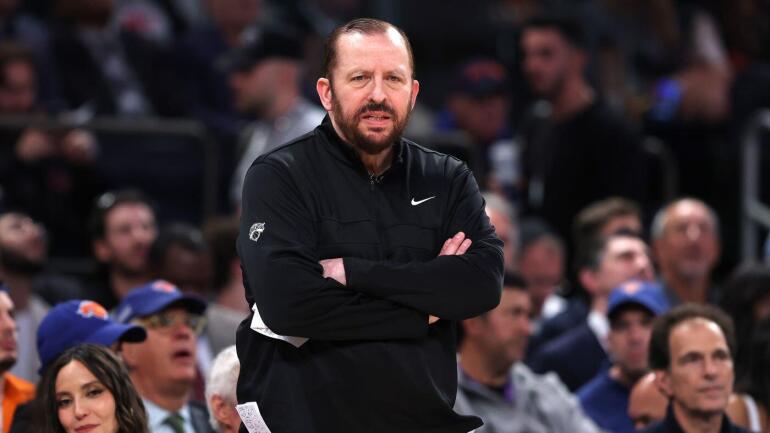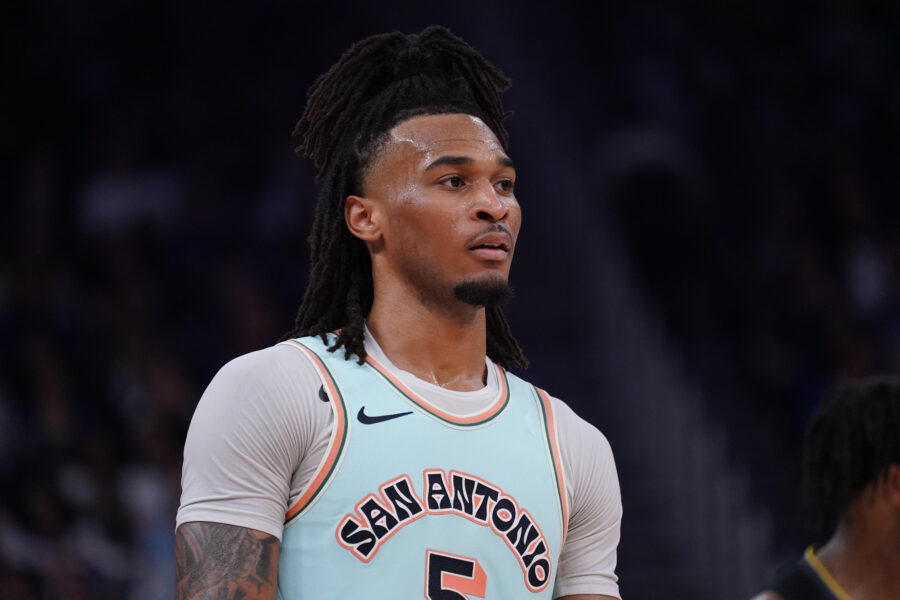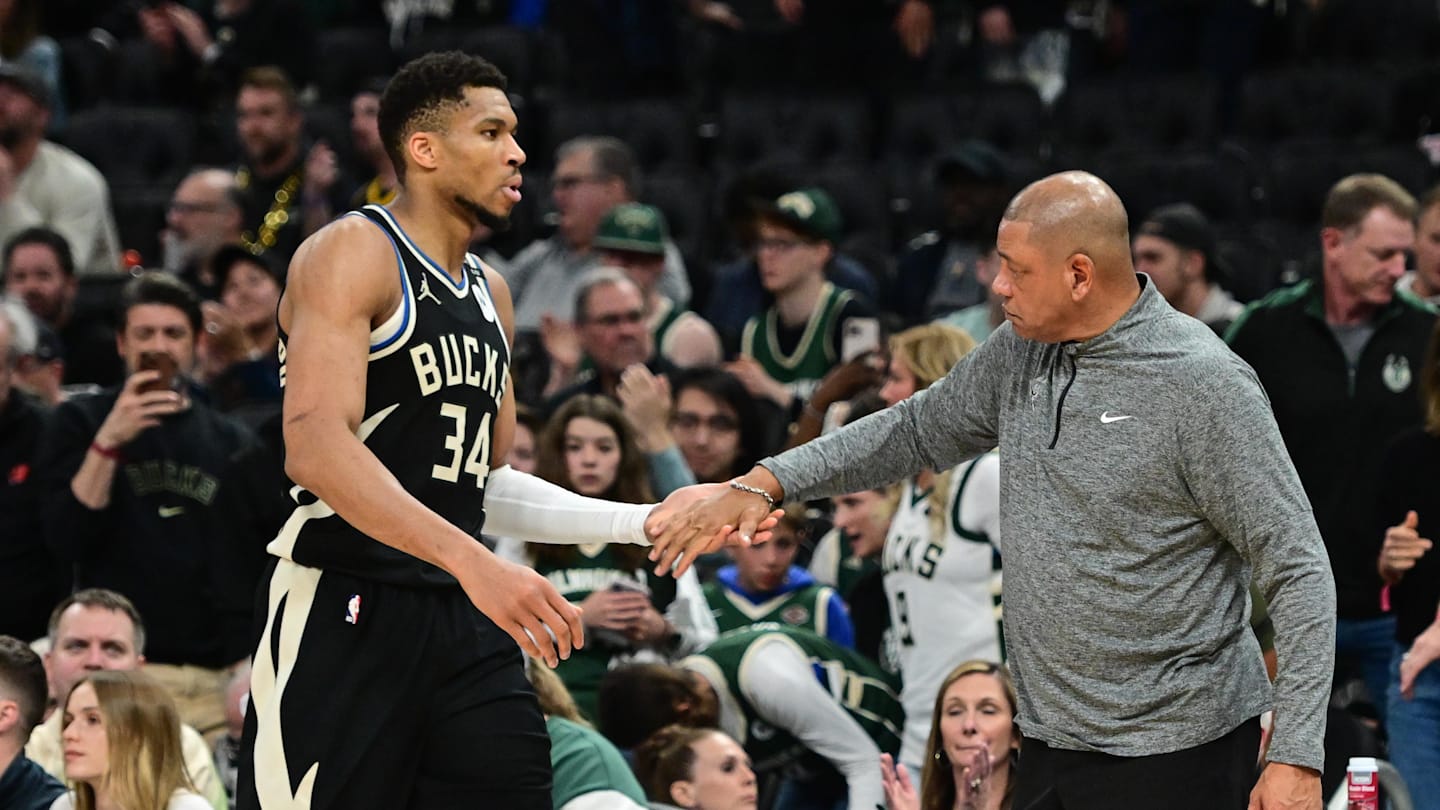
No lineup in basketball has played more than the starting five for the New York Knicks. The group of Jalen Brunson, Josh Hart, Mikal Bridges, OG Anunoby and Karl-Anthony Towns played 940 minutes during the regular season, and only two other lineups played even half as many minutes. It’s a Tom Thibodeau cliché at this point. No coach in the NBA clings as desperately to his best players as Thibodeau does.
He’s been a head coach for 12 full seasons and one of his players has led the NBA in minutes per game in four of them. Even when they don’t, several are often near the top of their list. His 2018 Timberwolves starters also led all NBA lineups in total minutes. This is perhaps his defining trait as a coach.
It’s also probably going to cost him his first trip to the NBA Finals.
Almost every lineup the Knicks are putting on the floor this postseason is working. Of the 18 most-used lineups New York has thrown out there in the playoffs, 12 have a positive point-differential and a 13th is neutral. Of the five negatives, three have only been outscored by single digits. A fourth has only played 11 minutes.
But the fifth is by far the most-used, and — based on the first two paragraphs — you probably know which group I’m talking about. New York’s starters have played 308 minutes in the postseason and been outscored by 50 points.
This is basically statistically impossible. The last lineup to go minus-50 or worse was Oklahoma City’s starting lineup in the Orlando bubble back in 2020. Lineup data has been tracked since 2008, and since then only seven lineups besides New York’s starters have reached the minus-50 threshold in a single postseason. Of those groups, only one other — the starters for the 2018-19 Portland Trail Blazers — played more than 200 minutes within that postseason. There’s an easy logic to that fact. Generally speaking, if a lineup is playing that badly in the postseason, the team is smart enough to stop using it. If they aren’t, they’re just eliminated before they can rack up lofty minutes or negative plus-minus totals.
That’s what’s so maddening here. Every other lineup the Knicks are using is working. But they keep going back to a group that isn’t, and hasn’t for quite some time. New York’s starters dominated December with a plus-63 point-differential in 241 minutes. Otherwise, the group has been pedestrian at best, not going a single month with a better point-differential than plus-15. Entering the Eastern Conference finals, it had been outscored by double digits in four of New York’s first 12 playoff games.
In Game 1 of the Pacers series, New York won the minutes it played with at least one reserve in the game by 13 points. The Knicks lost the game by three points because the starters went minus-16. Before Game 2, Thibodeau said that “everything is always on the table” when it comes to lineup changes.
He proceeded to stick with the same group for Game 2. It played the first seven minutes and 18 seconds of Game 1 and was outscored by eight points. The lineups featuring at least one non-starter proceeded to build a three-point halftime lead. Thibodeau went back to the starters at the beginning of the third quarter and gave them seven minutes and 42 seconds of playing time. That three-point halftime lead became a two-point deficit.
Thibodeau finally seemed to learn his lesson from there, sticking with lineups featuring at least one reserve the rest of the way. The damage was done. Through two games, the Knicks have won the minutes they’ve played without their starting lineup on the floor by 21 points. They’re trailing 2-0 in the series because Thibodeau has refused to make a change.
When Mikal Bridges was asked about the starters’ struggles following Game 2, he explained that he felt that “maybe we’re just playing too soft at the beginning of the halves.” That is an understatement. This lineup can’t stop a nosebleed. Its 117.6 defensive rating in the playoffs would rank 26th in the NBA during the regular season.
That’s part of what’s so befuddling. Thibodeau is a defensive-minded coach. The two reserves New York has leaned on all postseason, Miles McBride and Mitchell Robinson, are playing great defensively this postseason. Indiana’s offense works in part because everybody can handle the ball. Hart, while a strong help-defender, does not generate as much pressure on the ball as McBride does. He’s also guarded less on the perimeter, clogging the paint for Towns and Brunson. Hart is an incredibly important player for New York both overall and in this series. It has become painfully obvious during this postseason, however, that he is not best-utilized playing alongside New York’s other starters. His energy is just more powerful off of the bench.
If McBride doesn’t join the starting lineup, Robinson probably should. Aside from providing necessary rim-protection, New York’s major advantage in this series is rebounding. The Pacers ranked 28th in rebounding rate during the season. When Robinson has been on the floor in this series, the Knicks are pulling in 58.8% of available rebounds. That falls to 50.5% when he sits. The Pacers have been the better team in a number of ways in this series. If the Knicks can’t press the advantages they do have, they can’t win four out of five games to salvage the series.
By bringing Robinson off of the bench, Thibodeau is limiting how many effective minutes he can play. Robinson played 29 minutes in Game 2, the most he’s played all postseason. But because those minutes came off of the bench, they basically all had to come in succession. Robinson entered Game 1 with 5:19 remaining in the first half and left with 1:42 remaining in the second quarter. That’s 16 consecutive minutes of game time for someone who didn’t debut this season until the end of February and isn’t used to those type of minutes to begin with. He isn’t conditioned to play that many minutes in a row.
Sure enough, he wore down. New York won the Robinson minutes by 13 in the first half, but lost them by seven in the second. If Robinson were starting, Thibodeau could at least find him more rest between these lengthy stints.
This doesn’t even need to be a matter of players needing to get substantially more or fewer minutes. It’s the alignment that matters so much. All five Knicks starters are critical for different reasons. As a group, they just don’t work as well as any other combination alongside either Robinson or McBride. But even when Thibodeau finds units that work, he isn’t sticking with them. The Knicks lost the nine minutes Brunson rested by nine points in Game 2. In Game 1, the Brunson-less lineup of Towns, Anunoby, Hart, Robinson and McBride outscored the Pacers by 11 points. Yet Thibodeau didn’t even use it in Game 2 for reasons that remain unclear.
In most cases, judging coaches so overtly is unfair. A lot of what they do is invisible, and that can blow the visible components of their job out of proportion. A single lineup decision in a single game rarely warrants this degree of scrutiny. But this isn’t just a single decision in a single game. There are months of data at this point screaming that New York’s starting five is not working. It has been the single dominant storyline of their postseason. Fans have been begging him to make a change, and if he had, the Knicks might be two wins away from the Finals right now.
Instead, they’re two losses away from elimination with three road games in this series still ahead of them. Knowing which players to put on the court is about as straightforward a measure of coaching quality as exists in this sport. Nothing else matters if you’re using the wrong players. And in that regard, Thibodeau is almost empirically coaching the Knicks out of this series.



